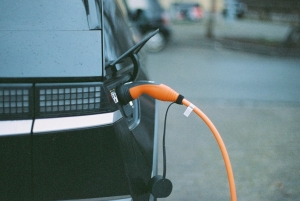Clean Energy Canada | Ditching fossil fuels can be a silver bullet for cost-burdened British Columbians
July 31, 2024

When B.C. voters head to the polls on Oct. 19, no doubt affordability will be top of mind for many. From high home prices to a skyrocketing rental market, anyone looking for a new roof over their head doesn’t have it easy these days. Nor do commuters with gas prices often hovering close to $2 a litre.
But while housing unaffordability has no easy solutions for the embattled buyer – save for a lucky inheritance – consumers have a choice when it comes to how they power their vehicles and heat their homes. And the province has a choice, as well, to help more people access better, cleaner and ultimately cheaper alternatives.
A new study from Clean Energy Canada finds that, when considering the full costs of ownership over the course of a decade – from a car’s purchase price to fuel and maintenance – a typical electric vehicle saves B.C. drivers more than $30,000, or at least $3,000 a year. In fact, car buyers in some cases pay less for their EV than a comparable gas car upfront when factoring in government incentives, while most other options now break even relatively quickly.
It should be said as well, of course, that investments in public transit, walking and biking infrastructure are also vital affordability initiatives for any government serious about tackling the cost of living for everyone.
Heat pumps, meanwhile, are particularly cost-effective for those living in Vancouver, according to analysis from the Canadian Climate Institute, saving an average household roughly $800 a year compared to a gas system with air conditioning, once again factoring in equipment costs.
Any way you look at it, the shift to cleaner, less wasteful energy is ultimately good news for affordability – even without factoring in the negative costs of climate change as more and more wildfires burn our forests and threaten our communities. But that, too, is a vital consideration for a province that cannot afford to let climate change go unchecked.
Meantime, both Canadian and international studies suggest that British Columbians will be spending less on energy in a net-zero world.
To its credit, the provincial government has made some major moves to help reduce household energy bills. In addition to EV purchase incentives of up to $4,000 for income-qualified applicants (which can be combined with the $5,000 federal rebate available to everyone), the province recently announced up to $10,000 in rebates for the installation of household rooftop solar and battery-storage systems. That followed a May announcement of up to $24,000 for income-qualified applicants to cover the costs of heat-pump installation, including electrical upgrades.
Real solutions require us to identify the true drivers of unaffordability, and thus it’s equally important that we call out false solutions – like scrapping the carbon price or a Vancouver city council decision last week to reintroduce natural gas heating in new construction – for what they are: costly distractions.
Most of us remember June 2022’s $2-a-litre gas prices (except maybe those who drive EVs), but for all the flak it received, a new study from the International Institute for Sustainable Development found that carbon pricing was responsible for a mere three cents of the $ increase gas prices saw when compared to June 2021. The rest was instead driven by the volatility of a global oil market, a factor beyond Canada’s control. Those high fossil fuel prices also reached beyond the pump, driving 33 per cent of Canada’s overall inflation from February 2021 to June 2022.
B.C. may have no sway over global oil markets, but British Columbians have a historic opportunity to upend a costly status quo, and their government can and should help them do just that. Heading into another election, it remains vital that B.C. continues its EV rebate program to help more people access these money-saving vehicles, as upfront costs can be a barrier even when the long-term math makes sense. Additionally, investing in charging infrastructure – and in particular helping drivers without garages access reliable charging – and keeping the province’s commitment to increase EV sales and availability will help complete B.C.’s EV policy puzzle.
If all of that sounds a little high-level, consider a common summer road trip for many a British Columbian. Driving from Vancouver to Kelowna in a typical gas car would cost about $60 using 2023 average gas prices, according to our latest report. But in an EV? Try $10 – hardly more than an oat milk latte after tax and tip.
This post was co-authored by Stefan Pauer and originally appeared in Business in Vancouver.